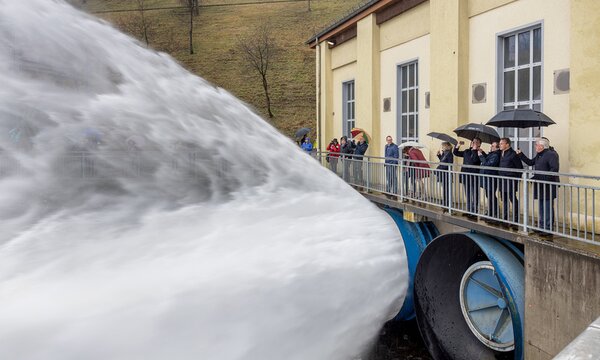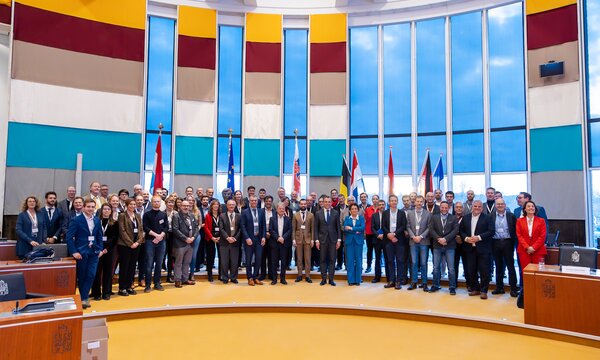As we face increasing climate extremes, effective flood and drought management is more important than ever. Our research must be agile and responsive, adapting quickly to the demands of these crises.
This is where the work of the Rapid Action Team (RAT) Studies becomes invaluable. By providing timely and relevant research, we can assist communities in navigating the challenges posed by extreme weather and help them build resilience for the future. Below is an overview of our ongoing research initiatives.
Methodologies for Defining Design Floods in Small River Basins
Led by: Luxembourg Institute of Science and Technology
Design floods are hypothetical events expected at specific locations over designated return periods and are crucial for managing flood risks. While common estimation methods often focus on larger river basins, their accuracy decreases in smaller basins that experience localized precipitation. Given the rising risk of pluvial floods in our region, there is an urgent need to adapt methodologies for better estimations. Regional cooperation and data sharing are essential for ensuring accuracy and consistency, especially in smaller basins where data is limited. This study analyses current methodologies for defining design floods in small river basins across the Benelux+ countries.
Comparative Study on Early Warning Systems for Flood Risk in the Netherlands, Germany, Belgium, and Luxembourg
Led by: All partners
The floods of 2021 in Northwestern Europe underscored the need for reliable forecasting and early warning systems to minimize disaster impacts. Effective forecast-based actions can greatly reduce community exposure and vulnerability to floods. Despite advancements, early warning systems in the Netherlands, Germany, and Belgium are still developing and regularly updated. Current efforts focus on addressing challenges such as forecasting uncertainty, evacuation triggers, and fragmented institutional responsibilities. However, a systematic comparison of these systems is lacking, which could enhance their effectiveness by allowing countries to learn from one another.
Flood Early Warning and Response during the July 2021 Flood: A Cross-Country Comparison Based on Public Survey Data
Led by: Vrije Universiteit Amsterdam, University of Liège, and Deltares
The July 2021 flood affected the Netherlands, Belgium, and Germany, leading to public surveys that assessed the effects on individuals and the performance of flood early warning systems (FEWS). Findings reveal variations in FEWS effectiveness across and within these countries. This study investigates whether these differences are due to the systems themselves or the variations in sampling and data collection methods. We also evaluate public surveys as a tool for future flood events. Our goal is to extract regional insights from this event to improve post-disaster survey research and enhance flood management strategies.
Understanding the Perspectives of Young Stakeholders and Residents on Preparedness for Climate Extremes in the International Vecht River Basin
Led by: DesignLab of the University of Twente
This study aims to gather insights from young stakeholders and residents under the age of 30 regarding preparedness for climate extremes in the Vecht river basin. Three workshops will be conducted to engage participants in sharing their views and developing strategies for improved climate resilience. The outcomes will inform local climate action plans and ensure that the voices of future generations are included in decision-making processes.
Would you like to learn more about our ongoing RAT studies? Discover more in our latest magazine here.
Explore additional reports, scientific publications, and other relevant documents in our knowledge base.



